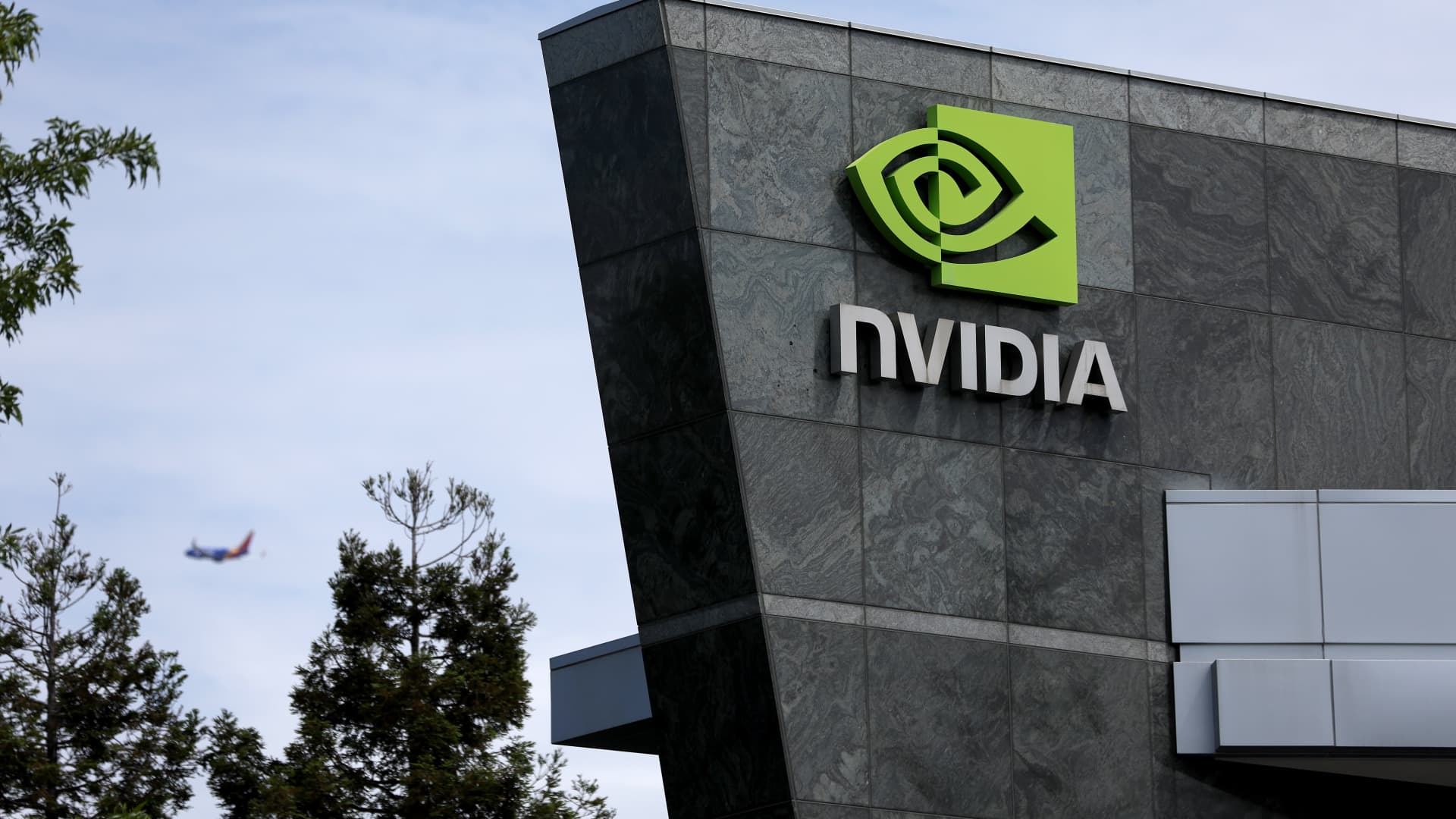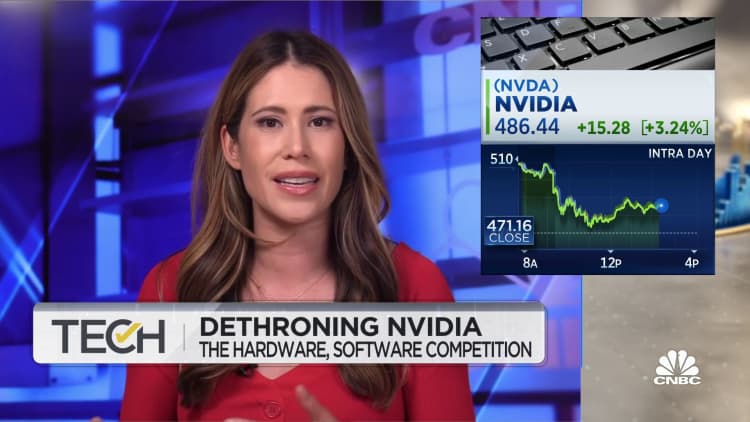Nvidia earnings scare away AMD, Intel investors as legacy chipmakers lose ground in AI


Justin Sullivan | Getty Images
Developers in the world of artificial intelligence can’t get enough of Nvidia’s processors. Demand is so strong that the company said late Wednesday that revenue in the current quarter will jump 170% to roughly $16 billion.
Nvidia shares rose more than 2% on Thursday before slumping towards the end of the day to finish flat and miss a record close, while the broader market had a rough day.
There’s a flipside to the story. AMD, Nvidia’s main rival in the market for graphics processing units (GPUs), is falling further behind, while chip giant Intel continues to miss out on the hottest trend in technology.
Shares of AMD and Intel fell 7% and 4%, respectively, following Nvidia’s fiscal second-quarter earnings announcement.
Nvidia’s blowout report and comments from executives suggesting that demand will remain high through next year is giving investors a reason to ask if the company has any serious competition when it comes to making the kind of GPUs needed to build and run large AI models.
Nvidia’s success also signals a shift in the market for data center chips. The most important — and generally most expensive — part of a data center buildout is no longer tied to central processors, or CPUs, made by Intel or AMD. Rather, it’s the AI-accelerating GPUs that big cloud companies are buying.
Alphabet, Amazon, Meta and Microsoft are snapping up Nvidia’s next-generation processors, which are so profitable that the company’s adjusted gross margin increased 25.3 percentage points to 71.2% in the period.
“NVDA Data Center revenues are now expected to be more than double INTC+AMD Data Center revenues combined, underscoring the growing importance of accelerators for today’s Data Center customers,” Deutsche Bank analyst Ross Seymore wrote in a note on Thursday.
Nvidia is now expected to post $12 billion in data center sales in the current quarter, according to FactSet data. Intel’s data center group is expected to post $4 billion in revenue, while analysts project AMD’s division will generate sales of $1.64 billion.
AMD and Intel are trying to stay relevant in the AI market, but it’s a struggle.
Intel CEO Pat Gelsinger said on the chipmaker’s earnings call in July that the company still sees “persistent weakness” in all segments of its business through year-end and that cloud companies were focusing more on securing graphics processors for AI instead of Intel’s central processors. Intel’s next high-end data center GPU, called Falcon Shores, is expected to be released in 2025. Its 2023 chip was cancelled.
AMD said on Thursday it acquired a French AI software firm called Mipsology. The company is also working on its own software suite for AI developers called ROCm to compete with Nvidia’s CUDA offering.
Like Intel, AMD faces a timing challenge. Earlier this year, it announced a new flagship AI chip, the MI300. But it’s currently only being shipped in small quantities, a process called “sampling.” The chip will hit the market next year.
“There is no meaningful competition for Nvidia’s high-performance GPUs until AMD starts shipping its new AI accelerators in high volumes in early 2024,” said Raj Joshi, senior vice president at Moody’s Investors Services, in an email.
The window is closing. While AMD and Intel are developing AI technology, they may find that all their big prospective customers have filled up on Nvidia chips before they can start shipping in large quantities.
“AI spending will be a material driver for several companies in our coverage,” Morgan Stanley analyst Joseph Moore wrote in a report. Moore cited AMD, Marvel and Intel as “having strong AI prospects.”
“But for those companies,” he wrote, “AI strength is going be offset by a crowding out of the budget.”
WATCH: Dethroning Nvidia?